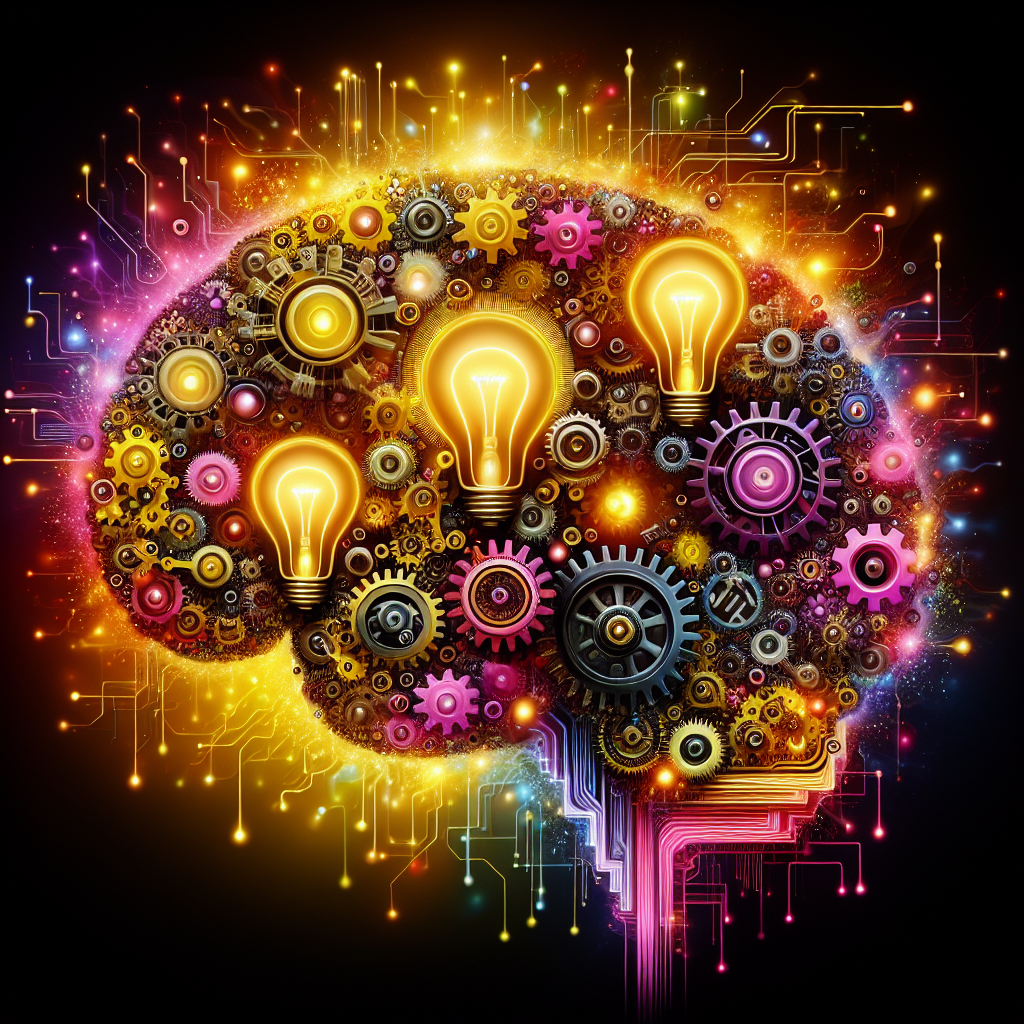The Psychology of AI-Enhanced Creativity
The field of artificial intelligence (AI) has rapidly advanced in recent years, leading to the development of AI systems that are capable of performing tasks that were once thought to be exclusive to human intelligence, such as creativity. In particular, AI-enhanced creativity has gained significant attention in various industries, including art, music, design, and literature.
But what exactly is AI-enhanced creativity, and how does it work? In this article, we will explore the psychology behind AI-enhanced creativity, its implications for human creativity, and some frequently asked questions about this emerging field.
Understanding AI-Enhanced Creativity
AI-enhanced creativity refers to the use of artificial intelligence systems to assist or augment human creativity in various domains. These systems are designed to generate novel ideas, designs, or solutions that can be used by humans to enhance their creative output. AI-enhanced creativity has been applied in fields such as music composition, visual art, writing, and product design, among others.
One of the key aspects of AI-enhanced creativity is the ability of AI systems to analyze large amounts of data and generate new ideas or solutions based on patterns and trends identified in the data. For example, AI systems can analyze thousands of existing songs to identify common patterns in melody, harmony, and rhythm, and use this information to generate new music compositions.
Another important aspect of AI-enhanced creativity is the ability of AI systems to learn from feedback provided by humans. By receiving feedback on their generated ideas, AI systems can improve their performance over time and produce more relevant and high-quality creative outputs.
Implications for Human Creativity
The rise of AI-enhanced creativity has raised questions about its implications for human creativity. Some have expressed concerns that AI systems could replace human creativity altogether, leading to a devaluation of human creative abilities. However, many experts argue that AI-enhanced creativity can actually complement and enhance human creativity, rather than replace it.
One of the main benefits of AI-enhanced creativity is the ability of AI systems to assist humans in generating new ideas and solutions more quickly and efficiently. By leveraging the analytical power of AI systems, humans can explore new creative possibilities and push the boundaries of their creativity in ways that were not possible before.
Furthermore, AI-enhanced creativity can help humans overcome creative blocks and challenges by providing fresh perspectives and ideas that can inspire new creative directions. This can be particularly valuable for artists, writers, and designers who may struggle with creative blocks or lack inspiration.
FAQs about AI-Enhanced Creativity
Q: Can AI systems be truly creative?
A: While AI systems can generate novel ideas and solutions, the question of whether they can be truly creative in the same way that humans are is still a matter of debate. Some argue that AI systems lack the emotional intelligence and intuition that are essential components of human creativity, while others believe that AI systems can exhibit creativity in their own right.
Q: How can AI systems enhance human creativity?
A: AI systems can enhance human creativity by providing new ideas, insights, and perspectives that can inspire and inform human creative processes. By analyzing large amounts of data and identifying patterns and trends, AI systems can help humans explore new creative possibilities and overcome creative blocks.
Q: What are some examples of AI-enhanced creativity in practice?
A: AI-enhanced creativity has been applied in various domains, such as music composition, visual art, writing, and design. For example, AI systems have been used to generate music compositions, create visual artworks, assist in writing novels, and design products.
Q: Are there any ethical concerns associated with AI-enhanced creativity?
A: There are ethical concerns associated with AI-enhanced creativity, such as issues related to intellectual property rights, data privacy, and the potential for bias in AI-generated creative outputs. It is important for creators and users of AI systems to be aware of these ethical considerations and take steps to address them.
In conclusion, AI-enhanced creativity represents a promising new frontier in the field of artificial intelligence, with the potential to revolutionize the way we think about creativity and innovation. By understanding the psychology behind AI-enhanced creativity and its implications for human creativity, we can harness the power of AI systems to enhance our own creative abilities and push the boundaries of what is possible in the creative process.

